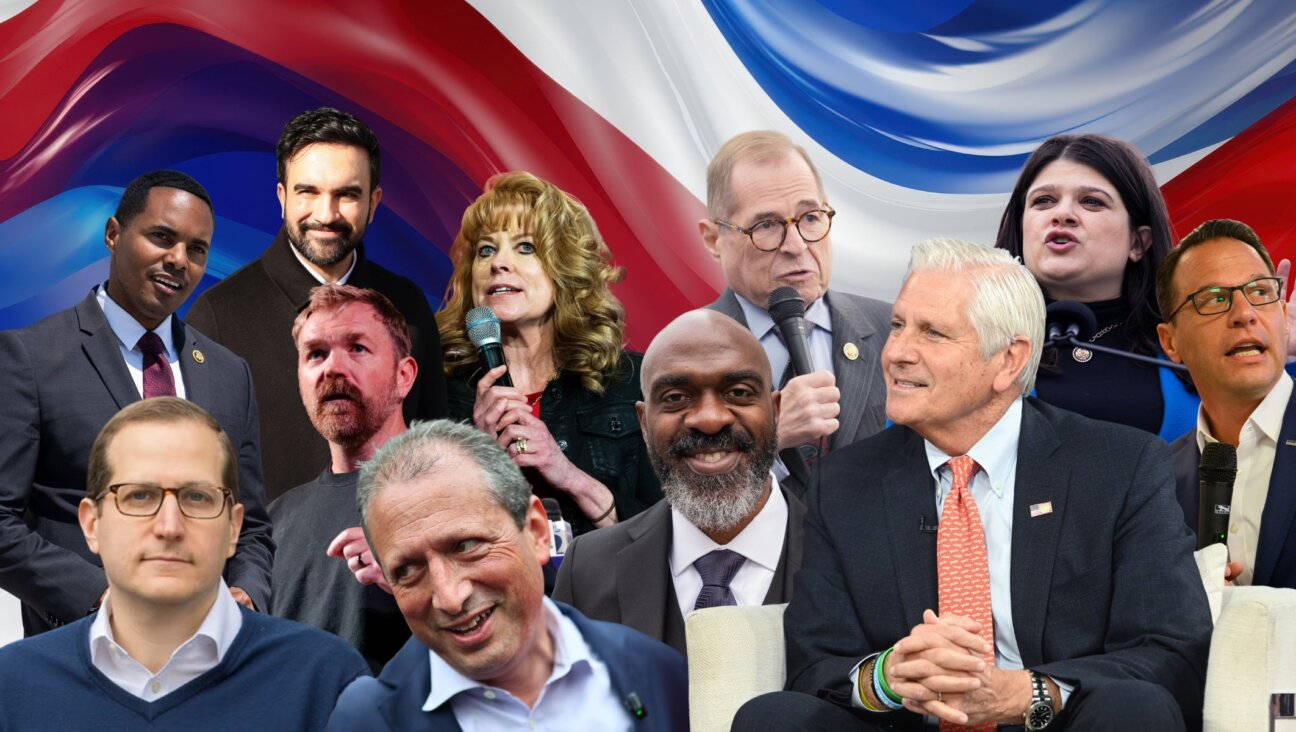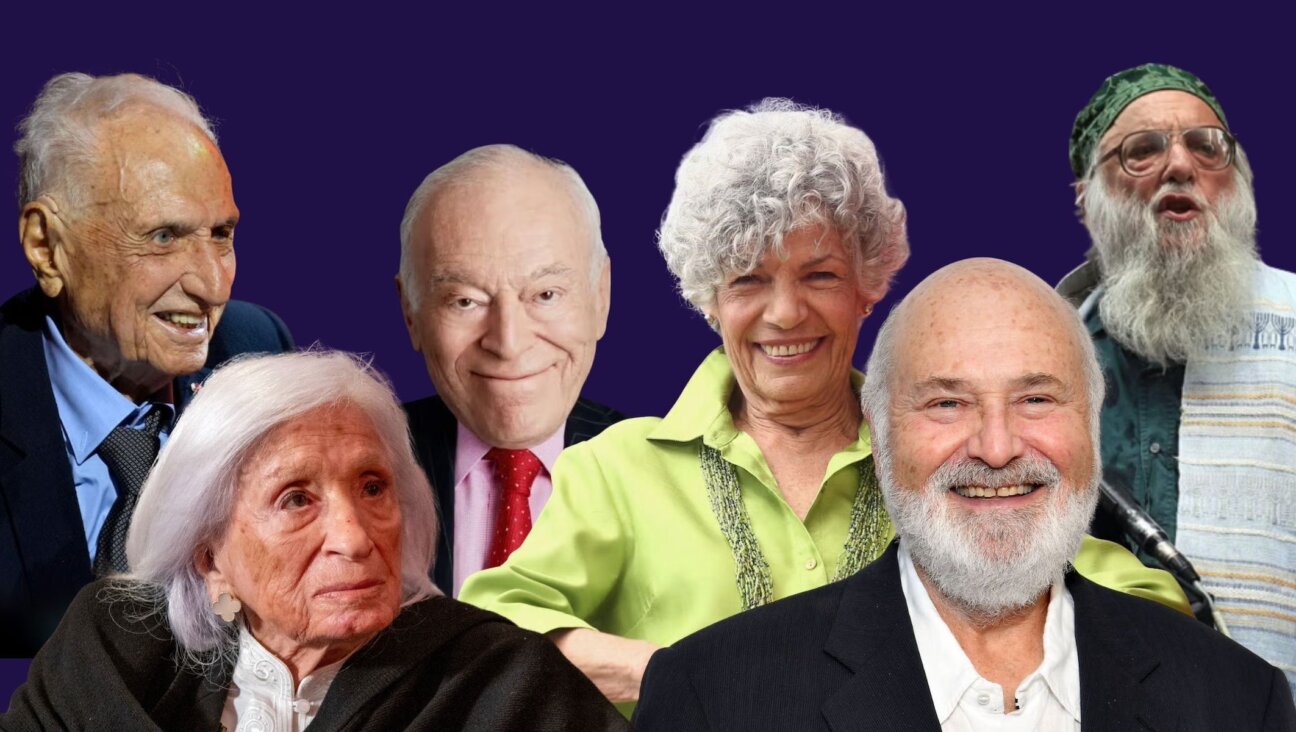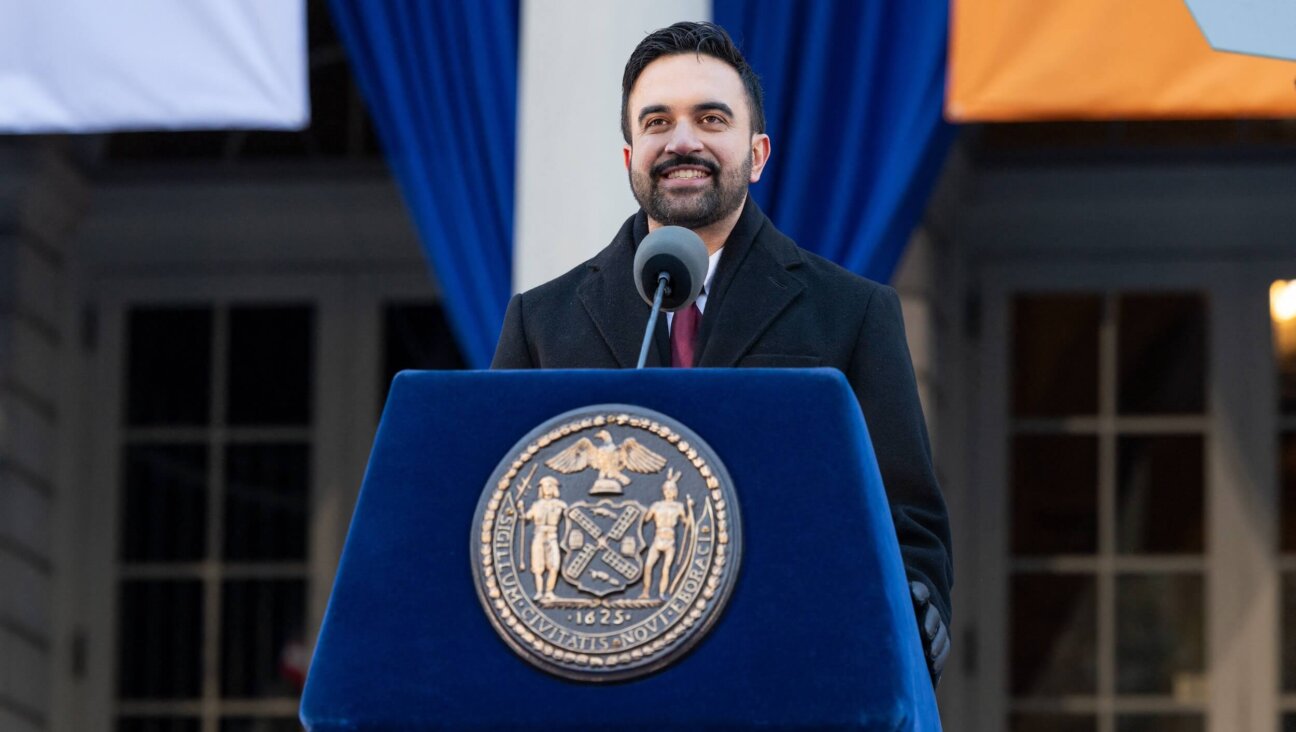7 Amazing Photos of the Pope’s Visit to Rome’s Great Synagogue

Pope Francis crossed the Tiber River to visit to Rome’s Great Synagogue Sunday. Image by Getty
Pope Francis crossed the Tiber River to visit Rome’s Great Synagogue Sunday.
His 1.5-mile journey to the towering Tempio Maggiore shows that what was once unthinkable is now the norm.
“Our meeting,” Rome Chief Rabbi Riccardo Di Segni said, “aims to convey a very topical, important and urgent message — that belonging to a faith, a religion, should not be a cause of hostility, hatred and violence, but that it is possible to build a peaceful coexistence, based on respect and cooperation.”
Here are 5 dramatic photos from inside:

Pope Francis crossed the Tiber River to visit to Rome’s Great Synagogue Sunday. Image by Getty
The Pope used his appearance to condemn, in a reference to Islamist attacks, violence in the name of religion.
Amid chanting of psalms in Hebrew and speeches underscoring the remarkable advances in Catholic-Jewish relations in the past 50 years, Francis became the third pontiff to visit Rome’s main synagogue, after popes John Paul and Benedict.
The temple is just across the Tiber River from the Vatican, and is rich with symbolism of the past persecution of Jews, who for nearly 300 years until the mid-19th century were forced to live in the adjoining quarter still known as The Ghetto and make compulsory payments to the popes.

Pope Francis crossed the Tiber River to visit to Rome’s Great Synagogue Sunday. Image by Getty
Security was exceptionally tight in the area, with even journalists going through three separate checks in the space of less than 100 meters. Anti-terror police patrolled both sides of the riverbank, which was closed to the public.
“The violence of man against man is in contradiction with any religion worthy of this name, in particular the three great monotheistic religions (Judaism, Christianity and Islam),” he said in what appeared to be a reference to attacks by Islamist militants.
“Conflicts, wars, violence and injustices open deep wounds in humanity that call on us to strengthen or commitment to peace and justice,” he said. “Neither violence nor death will ever have the last word before God.”

Pope Francis crossed the Tiber River to visit to Rome’s Great Synagogue Sunday. Image by Getty
The Jewish leaders who addressed him were more specific in their condemnation of Islamist violence.
“Faith does not generate hatred. Faith does not shed blood. Faith calls for dialog,” Ruth Dureghello, president of Rome’s Jewish community, said in her address to the pope.
“FANATIC VISIONS”
“Our hope is that this message will reach the many Muslim people who share with us the responsibility to improve the world in which we live. We can make it together,” she said.

Pope Francis crossed the Tiber River to visit to Rome’s Great Synagogue Sunday. Image by Getty
The Rabbi condemned violence “justified by fanatic visions inspired by religion.”
Yahya Pallavicini, an Italian Islamic leader involved in inter-faith dialog, attended the ceremony and the pope warmly greeted him.
A handful of Italian survivors of the Nazi death camps sat in the front row and Francis appeared moved when they were mentioned, rising with the congregation in a standing ovation.
“Their tears should never be forgotten,” Francis said.

Pope Francis crossed the Tiber River to visit to Rome’s Great Synagogue Sunday. Image by Getty
“The Shoah teaches us that we need the maximum vigilance in order to intervene quickly in defense of human dignity and peace,” Francis said, using the Hebrew term for the Holocaust.
The revolution in Catholic-Jewish relations began 50 years ago with when a document by the 1962-1965 Second Vatican Council repudiated the concept of collective Jewish guilt for the death of Jesus and called for inter-religious dialog.

Pope Francis crossed the Tiber River to visit to Rome’s Great Synagogue Sunday. Image by Getty
Under the late Pope John Paul, the first pontiff to visit a synagogue, the Vatican established diplomatic relations with Israel.
Last month the Vatican issued a major document saying Catholics should not try to convert Jews.

Pope Francis crossed the Tiber River to visit to Rome’s Great Synagogue Sunday. Image by Getty
On Sunday Francis called for the “rediscovery of the Jewish roots of Christianity” and repeated an appeal for Catholic to “say ‘no’ to every form of anti-Semitism.”
“Jews and Christians must, therefore, feel like brothers united by the same God and by a rich common spiritual heritage,” he said.













